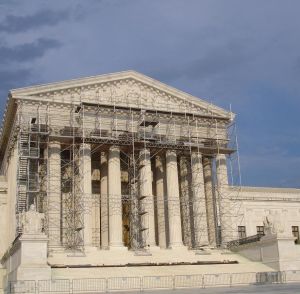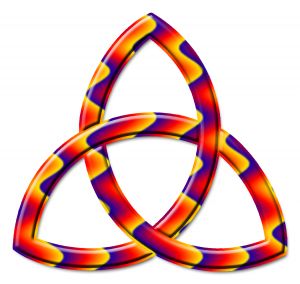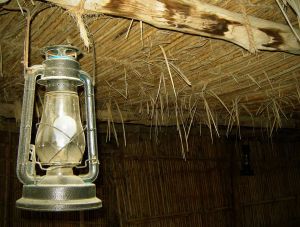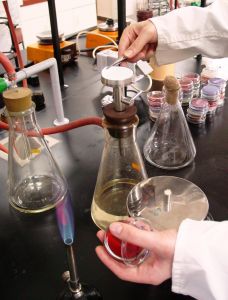 The rules regarding expert’s disclosure in New York, concerning when a Plaintiff or Defendant has to disclose to its opponent an expert witness that it intends to testify at trial if it hopes to use the expert’s affidavit in support of or opposition to a motion for summary judgement, might seem confusing. The rules have caused so much misunderstanding that the Appellate Division, Second Department, went out of its way to clarify them, in a recent decision, Rivers v. Birnbaum, 102 A.D.3d 26, 953 N.Y.S.2d 232 (2nd Dept. 2012). The key to understanding the rules is to understand the decision, both its rationale and the reasons the Second Department went out of its way to explain it in the first place.
The rules regarding expert’s disclosure in New York, concerning when a Plaintiff or Defendant has to disclose to its opponent an expert witness that it intends to testify at trial if it hopes to use the expert’s affidavit in support of or opposition to a motion for summary judgement, might seem confusing. The rules have caused so much misunderstanding that the Appellate Division, Second Department, went out of its way to clarify them, in a recent decision, Rivers v. Birnbaum, 102 A.D.3d 26, 953 N.Y.S.2d 232 (2nd Dept. 2012). The key to understanding the rules is to understand the decision, both its rationale and the reasons the Second Department went out of its way to explain it in the first place.
As we have previously discussed, if a party serves expert’s disclosure after the Note of Issue and Certificate of Readiness has been filed, without moving to vacate the Note of Issue first, the trial court has the discretion to refuse to consider an expert’s affidavit served in regard to a timely motion for summary judgement. See Rivers v. Birnbaum, supra,102 A.D.3d 26, 953 N.Y.S.2d 232 (2nd Dept. 2012), and Constr. by Singletree, Inc. v. Lowe, 55 A.D.3d 861, 866 N.Y.S.2d 702 (2nd Dept. 2008). In other words, a party might still be able to use the expert’s affidavit or it might not; it depends on the trial court and, as long as the trial court does not abuse its discretion, the party has to live with whatever the trial court decides. The real trick is to figure out what constitutes an abuse of discretion.
Before the Second Department decided Rivers v. Birnbaum, supra, last October, there was a widespread, mistaken, belief that a court would not and could not consider an expert’s affidavit in conjunction with a summary judgement motion unless the party that wanted to rely on it disclosed the expert before the Note of Issue and Certificate of Readiness were filed. Many read Constr. by Singletree, Inc. v. Lowe, supra, as creating such a hard and fast rule. Whether that was wishful thinking or panic, it was reading something into the court’s decision that was not there. As we discussed last time, Constr. by Singletree, Inc. v. Lowe, supra, only held that it was not an abuse of discretion for the trial court to refuse to consider such an expert’s affidavit.
Rivers v. Birnbaum, supra, was the perfect vehicle for the Second Department to clarify the rule. It was a medical malpractice action that had a sympathetic plaintiff, a mother who claimed the doctors, hospital, and other health professionals, who cared for her during her pregnancies missed obvious warning signs of gynecological cancer she since has suffered from. At the conclusion of discovery, after the Plaintiff filed the Note of Issue and Certificate of Readiness, many of the defendants moved for summary judgement; they used affidavits from experts, however, that they had not previously disclosed. If there had been a hard and fast rule, as many believed Constr. by Singletree, Inc. v. Lowe, supra, provided, then the defendants would have been precluded from relying on those experts’ affidavits. The trial court, however, even though the plaintiff cried foul, considered the defendants’ experts’ affidavits and granted the defendants summary judgement. The Second Department upheld the decision, and its reasoning is enlightening.
The main point behind the Second Department’s decision in Rivers v. Birnbaum, supra, is that the central purpose of a motion for summary judgement is to determine whether there is a genuine issue of material fact that requires a trial; if there is one, the motion must be denied. As the court said, precluding a party from relying on an expert’s affidavit merely because it did not disclose the expert prior to the conclusion of discovery, would not necessarily achieve that goal. Rivers v. Birnbaum, supra,102 A.D.3d at 42, 953 N.Y.S.2d at 243 (2nd Dept. 2012). In other words, an arbitrary decision to uphold an unclear deadline, may not be the best way to ensure that justice between the parties to a given lawsuit is done. What makes this guiding principal even clearer is that the Second Department explicitly stated that a trial court could impose strict deadlines for the completion of expert’s disclosure and, as long as the deadline was clearly set beforehand, the trial court could sanction a party for violating it. Rivers v. Birnbaum, supra, 102 A.D.3d at 39, 953 N.Y.S.2d at 241 (2nd Dept. 2012).
In Rivers v. Birnbaum, supra, the court found that the defendants, through the use of their experts, had made a prima facie showing, as they were required to in this medical malpractice action, that, in treating plaintiff, they had not deviated from the accepted standard of medical care. It also found that plaintiff had not raised a triable issue of fact about this; it was not even a close call. As the court pointed out in great detail, plaintiff’s experts’ affidavits were vague, conclusory, and otherwise deficient.
Therein lies the key. Why would the court deny summary judgement, and either require a trial or let plaintiff win, when plaintiff could not establish even the arguable existence of a genuine issue of material triable fact in opposition to the summary judgement motions? Precluding the defendants from relying on their experts’ affidavits merely because they had failed to disclose their experts prior to the filing of the Note of Issue and Certificate of Readiness, especially when the trial court had not set that point as the deadline for expert’s disclosure, would be a waste of time and a miscarriage of justice.
Continue reading
 How do you prepare a witness to testify at trial? That seems like a fair question; but what’s the best way to do it? It seems like there are as many different answers as there are people to answer it.
How do you prepare a witness to testify at trial? That seems like a fair question; but what’s the best way to do it? It seems like there are as many different answers as there are people to answer it.  New York Business Lawyer Blog
New York Business Lawyer Blog


 Trying cases in New York is fun; not the everyday let’s have a good laugh fun, but an exhilarating, team play, goal accomplished, touchdown, kind of fun. Dealing with jurors is a big part of the job: selecting them; persuading them; deferring to their decisions. Trial work and jurors: you can’t have one without the other.
Trying cases in New York is fun; not the everyday let’s have a good laugh fun, but an exhilarating, team play, goal accomplished, touchdown, kind of fun. Dealing with jurors is a big part of the job: selecting them; persuading them; deferring to their decisions. Trial work and jurors: you can’t have one without the other.  What does a trial attorney do and what does it mean to be a trial attorney? These two seemingly simple questions, with their seemingly simple answers, actually go a long way towards uncovering some of the most common misperceptions about one of the most passionate, and arduous, fields in law. To put it simply, a trial attorney persuades and learns, or learns and persuades; however you put it, he never stops doing either.
What does a trial attorney do and what does it mean to be a trial attorney? These two seemingly simple questions, with their seemingly simple answers, actually go a long way towards uncovering some of the most common misperceptions about one of the most passionate, and arduous, fields in law. To put it simply, a trial attorney persuades and learns, or learns and persuades; however you put it, he never stops doing either.  The rules regarding expert’s disclosure in New York, concerning when a Plaintiff or Defendant has to disclose to its opponent an expert witness that it intends to testify at trial if it hopes to use the expert’s affidavit in support of or opposition to a motion for summary judgement, might seem confusing. The rules have caused so much misunderstanding that the Appellate Division, Second Department, went out of its way to clarify them, in a recent decision, Rivers v. Birnbaum, 102 A.D.3d 26, 953 N.Y.S.2d 232 (2nd Dept. 2012). The key to understanding the rules is to understand the decision, both its rationale and the reasons the Second Department went out of its way to explain it in the first place.
The rules regarding expert’s disclosure in New York, concerning when a Plaintiff or Defendant has to disclose to its opponent an expert witness that it intends to testify at trial if it hopes to use the expert’s affidavit in support of or opposition to a motion for summary judgement, might seem confusing. The rules have caused so much misunderstanding that the Appellate Division, Second Department, went out of its way to clarify them, in a recent decision, Rivers v. Birnbaum, 102 A.D.3d 26, 953 N.Y.S.2d 232 (2nd Dept. 2012). The key to understanding the rules is to understand the decision, both its rationale and the reasons the Second Department went out of its way to explain it in the first place.  The rules governing the use of expert witness affidavits to oppose, or support, motions for summary judgement in New York, especially in the Appellate Division, Second Department, often are misunderstood. There are cases in which the trial court does not consider an expert’s affidavit because the party that tries to use it did not disclose the expert before the Note of Issue and Certificate of Readiness were filed, which is when fact discovery should be completed. See
The rules governing the use of expert witness affidavits to oppose, or support, motions for summary judgement in New York, especially in the Appellate Division, Second Department, often are misunderstood. There are cases in which the trial court does not consider an expert’s affidavit because the party that tries to use it did not disclose the expert before the Note of Issue and Certificate of Readiness were filed, which is when fact discovery should be completed. See  There is no shortage of trial attorneys in New York, or around the country. What makes a good trial attorney, however, is open to debate. How to become one is even more difficult to define. Is it something you can master through hard work and perseverance; is it something you have to have a natural aptitude for; or is it some combination of both? As we previously discussed, there is a lot of practice involved in
There is no shortage of trial attorneys in New York, or around the country. What makes a good trial attorney, however, is open to debate. How to become one is even more difficult to define. Is it something you can master through hard work and perseverance; is it something you have to have a natural aptitude for; or is it some combination of both? As we previously discussed, there is a lot of practice involved in  Did you ever wonder what makes a trial attorney? Trials are strange, unique things that everyone seems to have an opinion on: An opinion on the outcome, the evidence, the witnesses, the jurors, and the lawyers; especially the lawyers. They did a good job; they did a bad job; can you believe they asked that question? How could the lawyer let that witness testify? What was he thinking? Everyone has heard the criticism, the
Did you ever wonder what makes a trial attorney? Trials are strange, unique things that everyone seems to have an opinion on: An opinion on the outcome, the evidence, the witnesses, the jurors, and the lawyers; especially the lawyers. They did a good job; they did a bad job; can you believe they asked that question? How could the lawyer let that witness testify? What was he thinking? Everyone has heard the criticism, the  Trial practice is well-named; it involves a large amount of practice. How you practice and prepare, though, is often just as important as whether you do so at all.
Trial practice is well-named; it involves a large amount of practice. How you practice and prepare, though, is often just as important as whether you do so at all. In our last article, we spoke about
In our last article, we spoke about  Trials are fascinating. People love to watch them. Crime dramas, police stories, and shows that feature the ins and outs of a law firm, and the lawyers that make it work, have filled prime time TV for generations. Just about everyone has their favorite. Trials, which form a big part of each, are just as interesting from the inside. In New York, there are intricate rules of evidence; the subtleness of persuasion without overt argument, as in a finely hewn opening statement; the art of insightful cross examination; and the passion of a good closing argument. But one of the most often misunderstood aspects of the trial is the expert witness, and the role she plays in persuading a jury and winning the case.
Trials are fascinating. People love to watch them. Crime dramas, police stories, and shows that feature the ins and outs of a law firm, and the lawyers that make it work, have filled prime time TV for generations. Just about everyone has their favorite. Trials, which form a big part of each, are just as interesting from the inside. In New York, there are intricate rules of evidence; the subtleness of persuasion without overt argument, as in a finely hewn opening statement; the art of insightful cross examination; and the passion of a good closing argument. But one of the most often misunderstood aspects of the trial is the expert witness, and the role she plays in persuading a jury and winning the case.